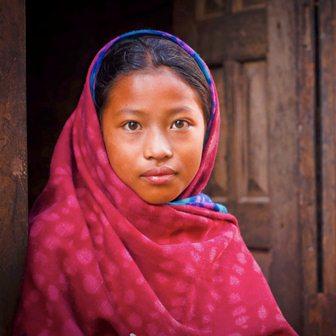Unaware of breastfeeding recommendations
WHO recommends exclusive breastfeeding as the best way of reducing ill-health and infant mortality. However, a new study shows that in Nepal few mothers receive any information on this, and hardly anyone practice it for the recommended period.
Main content
Infant feeding practices in Bhaktapur, Nepal: a cross-sectional, health facility based survey
Manjeswori Ulak, Ram K Chandyo, Lotta Mellander, Prakash S Shrestha and Tor A Strand
International Breastfeeding Journal 2012, 7:1
Benefits from breast milk
WHO recommends that all infants receive only breast milk without any additional food or drink for the first six months of life. This is called exclusive breastfeeding (EBF), and the benefit of this practice for growth, immunity and prevention of illness in young infants is undisputable. Introduction of foods other than breast milk before the child is six months old is not only undesirable, but could also be harmful. Still, the adherence to breastfeeding recommendations is quite low in many settings. Childhood malnutrition and growth faltering affects more than half of the children under five in developing countries.
Study in Bhaktapur, Nepal
This study was conducted in one of the most widely used vaccination clinics in Bhaktapur, Nepal; Siddhi Memorial Children’s Hospital. The clinic is visited by about 100 children each week. The aims of the study were to determine breastfeeding and infant feeding patterns at nine months of age and to assess factors influencing exclusive breastfeeding practices.
Poor information
A high proportion of the mothers started to breastfeed immediately after birth, but it was not common to continue exclusive breastfeeding for up to six months. Very few mothers received any information on breastfeeding during the antenatal visit, indicating a need for counseling on exclusive breast-feeding. Possible options for this counseling could be during antenatal visits and at regular clinic visits for vaccination.
Joint and nuclear families
Infants living in joint families (an extended family, consisting of several generations living under the same roof) were more likely to have received herbal drops than infants from nuclear families (a family group consisting or a pair of adults and their children). In a typical joint family structure in Nepal, usually a mother does not have a decision-making role, so the feeding patterns of a child might be affected by the advice from other family members or relatives.
This study shows that there is an urgent need for counseling on exclusive breastfeeding and that the promotion of EBF could be done within the present healthcare framework during antenatal visits and/or vaccination clinics. The vaccination coverage in the study area is high, and represents an excellent opportunity for breastfeeding counseling.
Read the full article in the International Breastfeeding Journal
